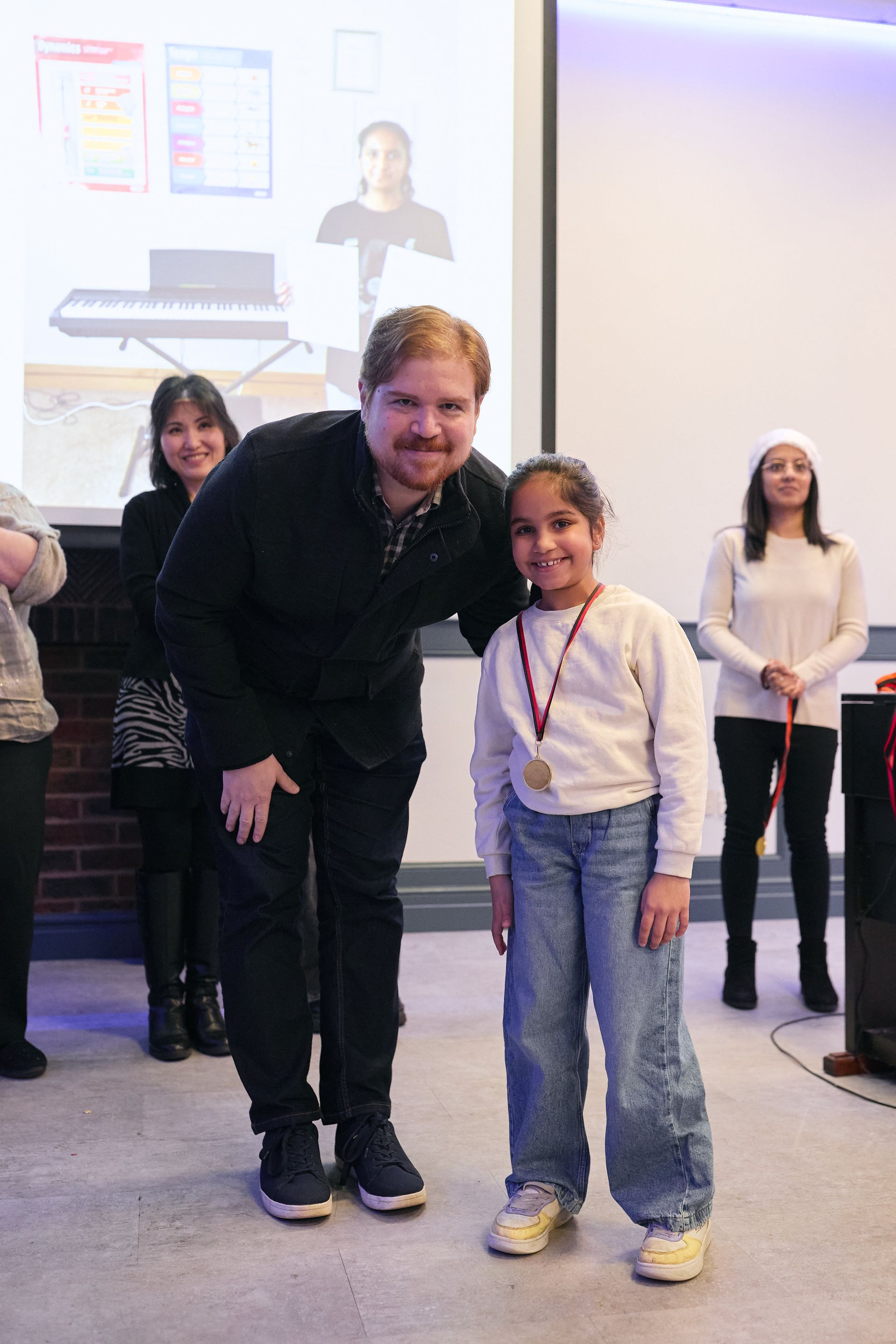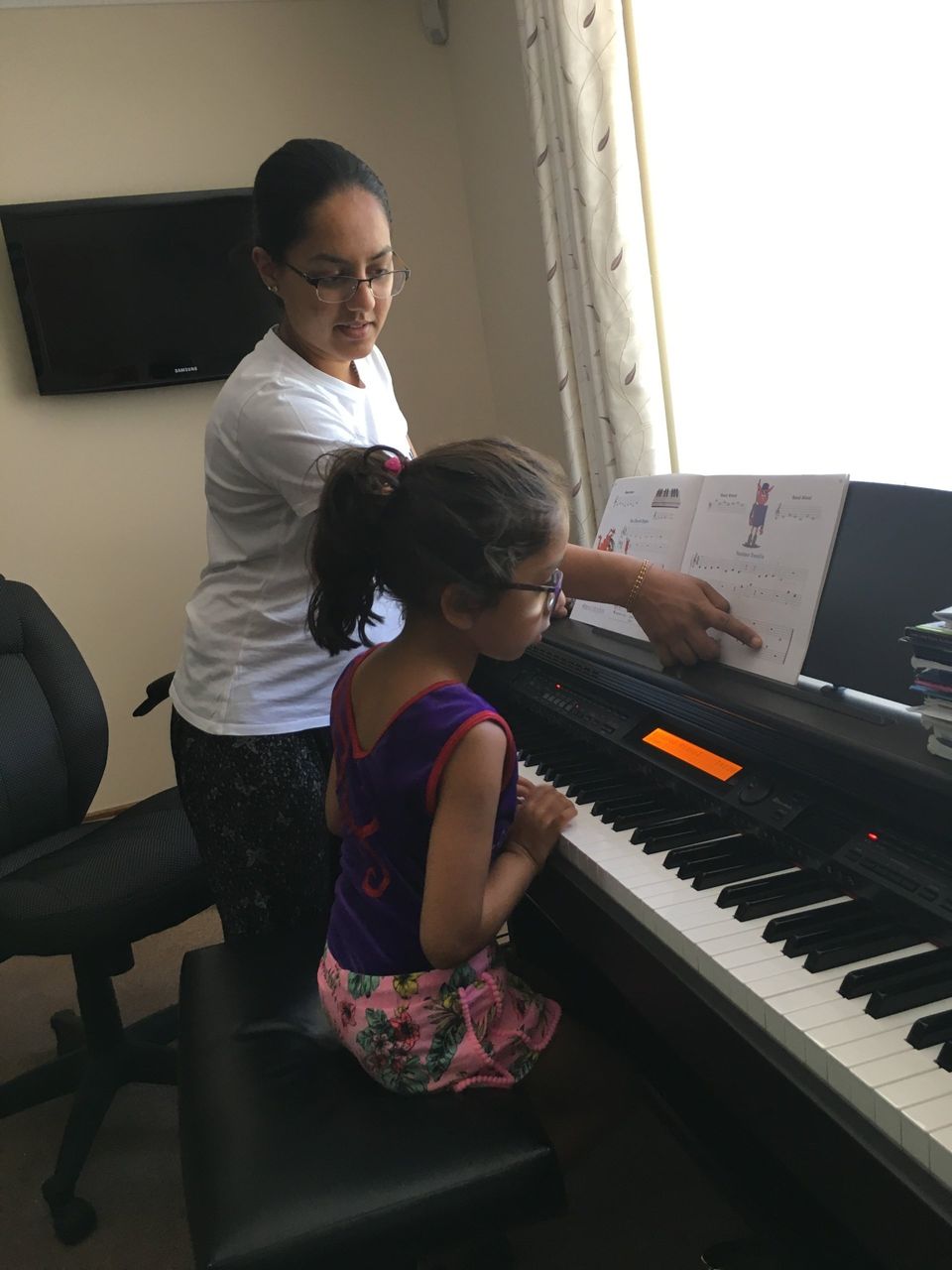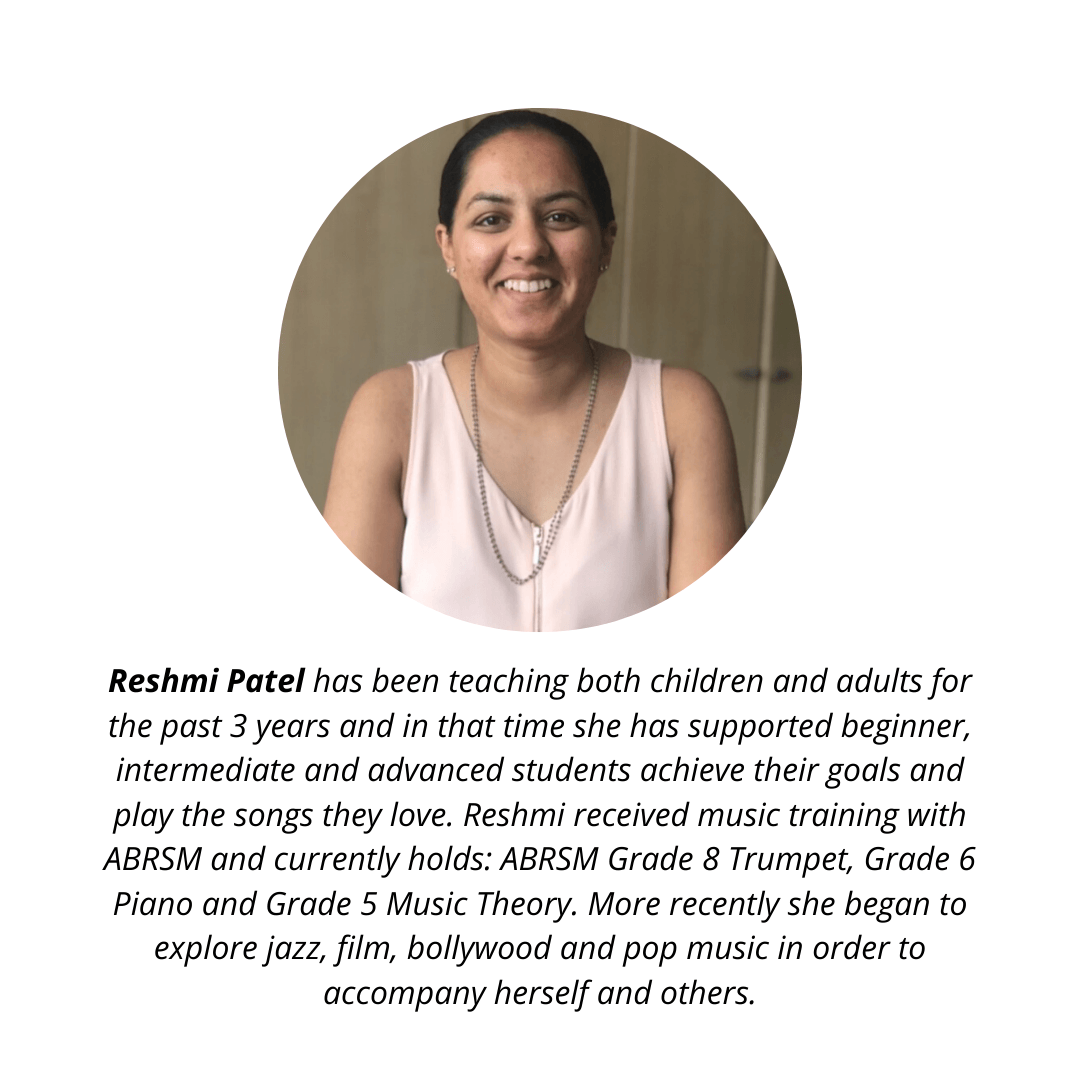Accountability Hacks When Learning to Play a Musical Instrument

When we begin to learn a musical instrument, it is a personal commitment.
Some students tend to find writing on sticky notes or their lesson materials to monitor their own progress during their practice sessions. The reason they find this useful is because they can then make sense of their musical journey in their own words.
A top tip for adult musicians would be finding their purpose behind their desire to learn music. Here are some prompt questions which may help you to discover this:
A) Why do I wish to learn music?
B) Why is (your answer in part A) important to you?
2. Community
Another form of accountability is speaking to like-minded musicians within your current social circles.
If you do not have anyone musical within your network, you may be able to join in with concerts at your local community centre, church, temple or school.
The best-selling book called: ‘Atomic Habits’ – which is based around how to build and break habits wrote:
‘One of the most effective things you can do to build better habits is to join a desired culture where your desired behaviour is the normal behaviour. New habits seem achievable when you see others doing them.’ – James Clear
3. Teacher
The final layer which will amplify your musical journey is working with a teacher.
The reason this will fast-track your learning is because:
- They have a proven track record in helping people with similar goals to you, which means they can quickly help you to avoid or overcome obstacles.
- They’ve been through a very similar journey to you themselves.
- They will hold you accountable to taking action and the necessary steps to help you make progress.
Remember that when you are trying out these systems to write them out and look at them little and often but also be patient with yourself. If you wish to know more about these hacks and resources, feel free to take a look around our website or connect with us directly.






